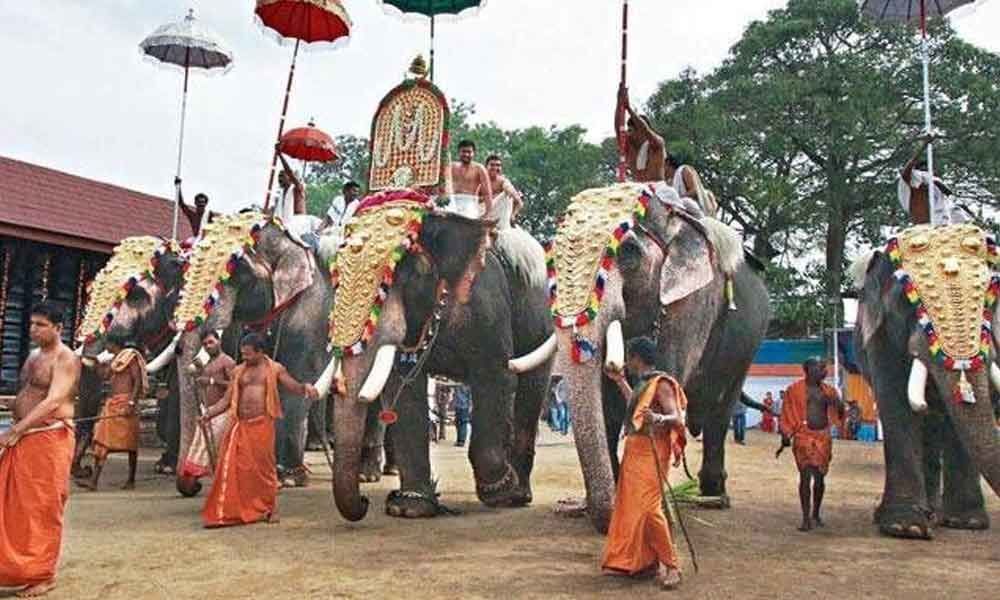Captive elephants suffer stress

CCMB study suggests the need to minimise participation of pachyderms in processions and religious activities
Hyderabad: Captive elephants experience stress suggesting the need to minimise their participation in processions and religious activities and also during their work for the Forest Department.
A study, led by G Umapathy, principal scientist, laboratory for the conservation of endangered species, CSIR- Centre for Cellular and Molecular Biology (CCMB) here, examined the physiological stress of captive Asian elephants, according to the CCMB said on Saturday.
The CCMB studied the health of elephants under different working conditions. The researchers checked for stress hormones levels in 870 dung samples of 37 captive elephants (24 males and 13 females) in Mysore Zoo, Mysore Dasara camp, Mudumalai elephant camp and Bandhavgarh elephant camp.
Elephants involved in public procession in Mysore Dasara festival had elevated stress hormones compared to their counterparts at the Mysore zoo, it said. Elephants born in the wild and females had significantly higher stress-level when exposed to various physical activities and different husbandry practices, it said.
The study showed that more than 20 per cent of Asian elephants live in captivity and are an indispensable workforce for Forest Department, tourism, and religious purposes.
A previous study by the research group had demonstrated that chronic stress affected female reproductivity cycle and thus reproduction in elephants. The study suggests minimising the participation of elephants in religious activities, processions and forest department activities", the release said.
Females with reproductive age (20-55 years) should not be used for stressful activities so that their reproductive cycles are not affected. An adult male elephant may be used for tourism and patrolling activities that involve three to four hours per day in the forests with adequate rest on alternate days.
Periodic monitoring of health and reproductive status by outside experts should be done, it said.
These, with educating elephant-handlers regarding the welfare of elephants, are of utmost importance, it said. These findings, through non-invasive techniques, are important in better handling of domesticated animals and minimising their discomfort that we were earlier not aware of, said Rakesh Mishra, director, CSIR-CCMB.
The study was published in a recent issue of journal 'Animals', the release said. More than 20 per cent of Asian elephants live in captivity and are an indispensable workforce for forest departments, tourism and religious purpose, the release said.
The stress in elephants influence the behaviour, welfare and long-term survival of the captive population. Their fertility is compromised, thus threatening the long-term survival of their populations. Higher violence in the stressed animals has resulted in human casualties too.
In Kerala which has a long tradition of keeping captive elephants, 274 cases of men killed by captive elephants have been recorded between 1989 and 2003 (an average of 10 men per year), the study revealed.











